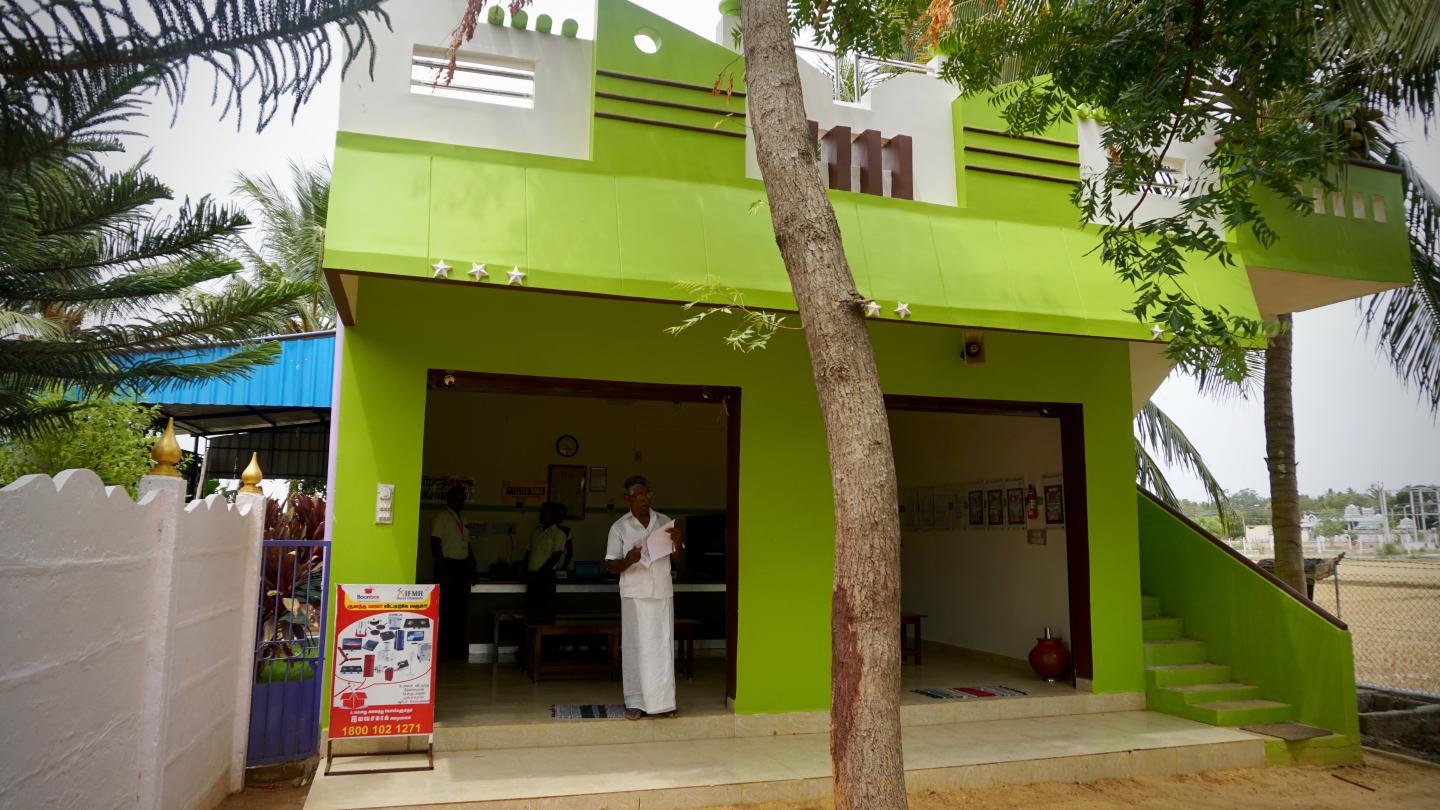Research to test a new model of banking for the rural poor
Extending financial services to the poor has been shown to reduce poverty, but poor people in rural areas often have limited options due to the relatively high cost of establishing traditional bank branches in remote areas. Alternative modes of delivering financial services to rural areas exist, such as Kshetriya Gramin Financial Services (KGFS). KGFS uses local village branches to provide financial services and tailored financial advice to poor rural residents in India’s southern state of Tamil Nadu. However, until recently there have been few efforts to rigorously evaluate their effectiveness.
Access to formal credit through village-level financial service points significantly reduces poverty for the rural poor without increasing financially-driven mental stress.
From 2009 to 2016, researchers affiliated with Inclusion Economics at Yale University – in collaboration with Duke University and the University of Warwick – have worked with KGFS to study its innovative business model, which leverages broad geographic distribution and low banker-to-client ratios to offer credit, insurance, and savings products. The research team conducted a randomized controlled trial to measure the impacts of KGFS services on poverty reduction, entrepreneurship, agricultural investments, social networks, mental health, and female empowerment – the first large-scale experimental impact evaluation of improved access to formal financial services for rural populations. The results show that KGFS services are associated with an 8% reduction in poverty and reduced psychological stress. The rich data produced by the project, whose results are forthcoming, also show that credit access has positive effects on non-agriculture self-employment and labor demand, demonstrating that rural banks can reduce poverty through both direct and indirect channels.
Highlights
- Institute for Financial Management and Research (IFMR). 2014. “KGFS Impact on Lending Patterns.” February 2014.
